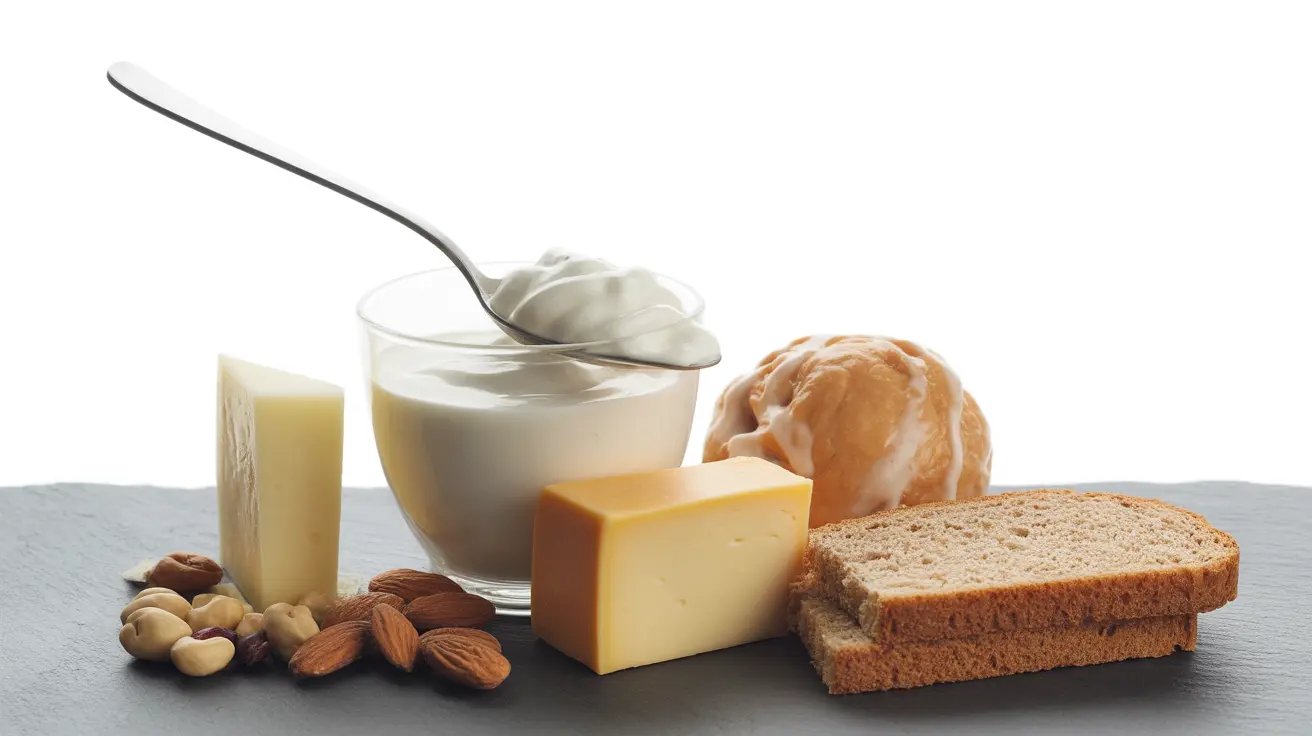If you frequently struggle with sinus congestion, your diet might be playing a bigger role than you realize. Certain foods can trigger inflammation, increase mucus production, and worsen sinus symptoms. Understanding which foods to avoid can make a significant difference in managing your sinus health.
Let's explore the most common dietary triggers for sinus congestion and why they might be affecting your breathing comfort.
Dairy Products and Mucus Production
While the relationship between dairy and mucus production remains somewhat controversial in scientific circles, many people report increased congestion after consuming dairy products. Common problematic dairy items include:
- Whole milk
- Heavy cream
- Cheese
- Yogurt
- Ice cream
The proteins in dairy may thicken existing mucus, making it more difficult to clear from your sinuses and airways.
High-Histamine Foods
Histamine-rich foods can trigger inflammatory responses in sensitive individuals, leading to increased sinus congestion. Common high-histamine foods include:
- Fermented foods (sauerkraut, kimchi)
- Aged cheeses
- Alcohol, especially red wine
- Processed meats
- Dried fruits
Understanding Histamine Sensitivity
When your body can't properly break down histamine from foods, it can lead to various symptoms, including nasal congestion, runny nose, and sinus pressure.
Refined Sugars and Processed Foods
Processed foods and refined sugars can promote inflammation throughout the body, including in your sinus passages. Common offenders include:
- White bread and pastries
- Sugary beverages
- Packaged snacks
- Candy and desserts
- Processed breakfast cereals
The Inflammation Connection
High sugar intake can suppress immune system function and increase inflammatory markers in the body, potentially worsening sinus symptoms and making you more susceptible to infections.
Common Food Allergens
Food allergies and sensitivities can trigger sinus reactions. Key allergens to watch for include:
- Gluten-containing grains
- Soy products
- Tree nuts
- Eggs
- Shellfish
Tips for Managing Diet-Related Sinus Issues
Consider these strategies to minimize food-related sinus problems:
- Keep a food diary to identify triggers
- Eliminate suspected problem foods one at a time
- Stay hydrated with water and herbal teas
- Choose anti-inflammatory foods
- Consider consulting an allergist for testing
Frequently Asked Questions
What foods are known to worsen sinus congestion and inflammation?
Foods that commonly worsen sinus congestion include dairy products, processed foods high in refined sugars, alcohol, caffeine, and high-histamine foods like fermented products and aged cheeses.
How does dairy consumption affect mucus production and sinus symptoms?
Dairy proteins may increase mucus thickness and production in some people, making it harder to clear airways and potentially worsening congestion. However, this effect varies among individuals.
Can eating high-histamine foods trigger sinus congestion and allergy-like symptoms?
Yes, high-histamine foods can trigger inflammatory responses and allergy-like symptoms, including sinus congestion, especially in people with histamine intolerance or sensitivity.
Why should refined sugars and processed foods be avoided if I have sinus issues?
Refined sugars and processed foods can increase inflammation throughout the body, potentially worsening sinus congestion and making you more susceptible to infections and allergic responses.
Are there specific foods that people with sinus sensitivity should eliminate to reduce symptoms?
People with sinus sensitivity should consider eliminating dairy products, processed foods, refined sugars, and known allergens from their diet. It's best to identify personal triggers through an elimination diet or with professional guidance.




